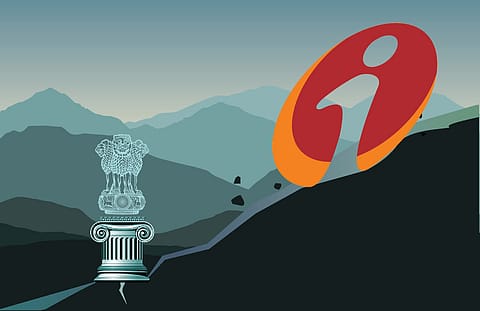Government storm in ICICI Bank’s teacup
The government has strengthened its position on the private lender’s board since the controversy broke.

It’s been more than two months since the ICICI Bank controversy broke, but the government has maintained a studious silence on it so far. Political clamour for the government to order an investigation has grown, but media reports said the government would not interfere with the bank’s functioning.
However, significant changes in the composition of the board of India’s largest private sector bank suggest the government has, in fact, strengthened its position on the bank’s board, directly or indirectly.
Before the controversy over allegations of conflict of interest and favouritism in granting loans to the Videocon group erupted in March, the board comprised 12 members. Five of them were bank employees, including managing director and chief executive officer Chanda Kochhar, and seven were independent directors, which included chairman M.K. Sharma.
Among the independent directors were a government nominee Amit Agarwal, a joint secretary in the Ministry of Finance; and V.K. Sharma, managing director of Life Insurance Corporation of India, which is owned by the government. Thus, in effect, two independent directors represented the government on the board.
On April 7, the government replaced Agarwal with Lok Ranjan, another joint secretary in the Ministry of Finance. After independent director Tushaar Shah’s eight-year term ended, he was replaced with Radhakrishnan Nair, former member of the Insurance Regulatory and Development Authority of India.
And on May 29, the board appointed M.D. Mallya, former chairman and managing director of public sector lender Bank of Baroda, as an independent director. His appointment has taken the number of board members to 13, with eight independent directors.
Observers feel that though the government will continue to have only two direct nominees on the board, the presence of Nair and Mallya will give it influence over four independent directors, as both have worked closely with the finance ministry in their previous roles.
Recommended Stories
“It appears that the government wants to doubly ensure that India’s largest private bank is not mired in any corporate governance issue given that its shares are mostly held by foreign investors,” says a senior corporate governance expert. “It doesn’t want to send any wrong message to the investor community at large.”
The bank has backed Kochhar but has also announced it will institute an inquiry into the allegations raised by an anonymous whistleblower.
The term of current chairman Sharma is set to expire on June 30 and he is not expected to seek an extension since he is already 70. The Reserve Bank of India has so far not approved anyone beyond the age of 70 to hold the chairman’s post.
When Sharma leaves, the count of independent directors will be down to seven. Given that the board will choose its next chairman in the next few months, the government's voice will surely be heard loud and clear.
(INR CR)